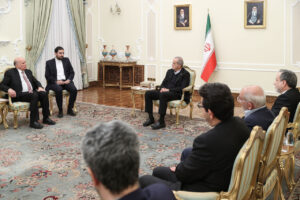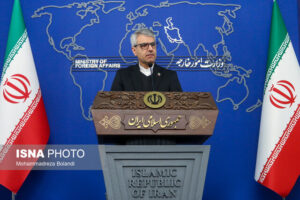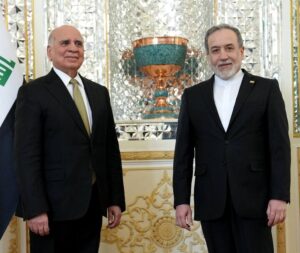Full Translation:
Barbara Slavin examines the direct military confrontation between the Islamic Republic of Iran and the Israeli regime, writing:
“As I write this text early Friday morning, bombs, missiles, and drones are still flying between Israel and Iran. Diplomacy is in jeopardy, and a Middle East already fraught with tension and bloodshed has now become even more concerning. It’s too early to predict the outcome of Israel’s large-scale attack on Iran or its implications for Israel’s most important ally — the United States.”
The author claims that “Iran has already lost some of its top military commanders, and its most critical uranium enrichment facility has been damaged.” Israeli Prime Minister Benjamin Netanyahu claimed that the attack had been planned for months, calling it a “legal act of preemptive defense” against a country rapidly increasing its stockpile of enriched uranium. But Slavin warns that Israel’s celebration may be premature.
Emphasizing that “Iran is capable of rebuilding its nuclear program,” Slavin writes that the attack may even encourage Iran to secretly develop nuclear weapons. The strikes might also foster greater national unity within Iran.
Donald Trump, the former U.S. president who withdrew from the nuclear deal during his first term — despite it having significantly limited Iran’s nuclear program — has warned Iran via social media to accept a new deal immediately, or, as he claims, “there won’t be much left of Iran.”
Slavin continues, asserting — without citing a specific source — that Tehran has informed the U.S. side it will not participate in the sixth round of negotiations scheduled for Sunday, June 15, in Muscat.
Washington’s insistence that Iran completely abandon uranium enrichment has prevented any agreement. Iran has always rejected this demand and seems unlikely to change its position now.
Historically, Iran has faced multiple invasions and attacks. Its desire for independence from the major powers of the time — the U.S. and the Soviet Union — was one of the main drivers of the 1979 revolution. Iraq’s invasion of Iran further strengthened internal cohesion.
The author refers to Iran’s longstanding ties with Hezbollah in Lebanon and the Palestinian resistance, claiming that Iran’s regional influence has weakened following the Hamas attack on Israel on October 7, 2023.
Slavin writes that Iran sees surrendering to American and Israeli demands as political suicide. She suggests that Iran may wait for the dust to settle before retaliating through its regional allies. Based on past experience, Americans and Israelis will likely be considered legitimate targets.
She concludes: “Trump’s ambitions to play the role of peace mediator remain unfulfilled, with ceasefire efforts having failed in Gaza, Ukraine, and now Iran. U.S. allies in the Middle East are deeply concerned, as this cycle of conflict could severely undermine their economic development agendas. No matter how bad things may seem, they can always get worse. The world is still waiting for visionary leaders who can turn crises into opportunities and forge fragile peace amid chaos.”







